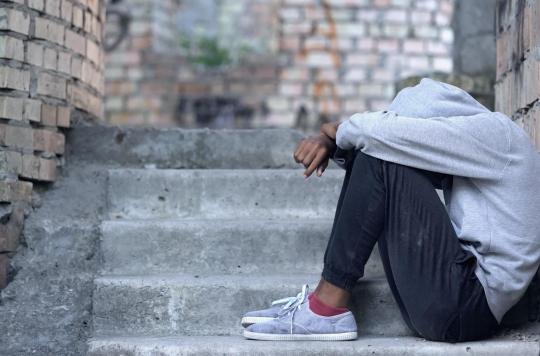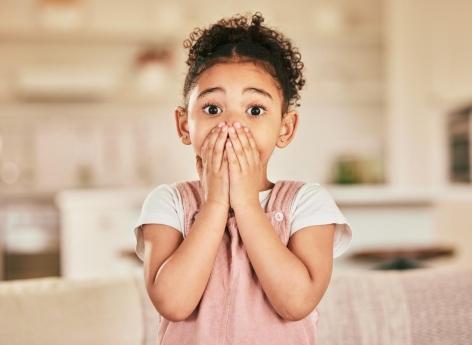On the occasion of the national days of schizophrenia, Alexandra Bichon tells us about the journey of her 15-year-old son, and gives us her own experience. At 49, this former nurse is president of the association “Chinese plates”.

- Schizophrenia affects nearly 700,000 people in France (i.e. 1 person in 100).
- There are early (before 18) and very early (before 16) schizophrenia.
– Why Doctor – Your son was diagnosed with schizophrenia at age 12. How did his first symptoms manifest?
Alexandra Bichon – I started to worry about him when he was in CM2. Around 11 years old, the school alerted me to behavioral changes. He was a calm, sweet, funny child, who began to show major anxiety and great agitation. He also began to somatize and solicit adults a lot. Sleep problems also appeared.
When he entered the colleague, my son very abruptly tumbled into a major depression. He could no longer hide the symptoms of schizophrenia: the hearing of voices and the hallucinations were amplified. I think they were there before, but the stress of college made them unliveable, with the appearance of terrifying characters.
– Were you then helped as parents?
When I started worrying about my son, I got no response, and very little support. I was told that I was an anxious mother, or that I suffered from professional deformation (Alexandra Bichon was then a nurse specializing in psychiatry, editor’s note).
– How was your son taken care of following his decompensation?
My son lived two long hospitalizations, one of three months in pediatrics and one of six months in CMP.
– Was he immediately diagnosed as schizophrenic?
No, because diagnosing schizophrenia takes time. The symptoms must be present for a minimum of six months, with a procession of so-called “positive” symptoms (visual hallucinations, voices, delusions), and so-called “negative” symptoms (lack of initiative and contact with others, in particular).
– How does your son live today?
He is out of school and lives at home, for lack of educational structures adapted to his mental illness. We fight a lot against the withdrawal.
He is being cared for by medical professionals, but he is not yet in recovery, as he suffers from an atypical form of schizophrenia which is resistant to medication. We are going through a painful journey of unsuccessful therapeutic trials.
– Does your child’s schizophrenia have an impact on your daily family life?
Yes, because for young people with early schizophrenia, you have to be very present as parents. There are not many relays, and taking care of yourself in this context is complicated.
It is also a very traumatic experience, because the diagnostic announcements are not accompanied. Finally, seeing your son sick is very painful to live with as a mother. I would also point out that all of the siblings are affected by the situation.
– What do you think of the care of your son ?
For young people suffering from very early schizophrenia, it is dramatic: nothing is planned for them, we are in a no man’s land. For example, we fought like crazy for six months to get a place in Medico-Psychological Center (CMP), a delay that increased my son’s troubles. He is also very insufficiently supported on the psychotherapeutic level, while medication is not everything.
For young people under 16, there is also very little “study care”, and admission is also very selective: to benefit from it, you must be recovered. It’s the dog biting its own tail, because the fewer structures there are for people with schizophrenia, the more symptoms manifest.
– Does your child suffer from “psychophobia”? And yourself ?
We both suffer from it. For my son, just saying the word “schizophrenic” is complicated, because too many clichés are still associated with this mental illness.
The de-stigmatization of schizophrenics is one of my great battle horses: these people are not violent, are not serious potential criminals, and do not suffer from split personalities. On this last point, I insist: it is completely false. I suffer a lot from seeing the word “schizophrenic” misused on a daily basis.
– Do you want to add anything?
We still rarely hear about early (before 18) and very early (before 16) schizophrenia. There is a form of health and social denial concerning the young people affected.
We are also on models of care that are too old, which do not offer anything apart from hospitalization.

.















